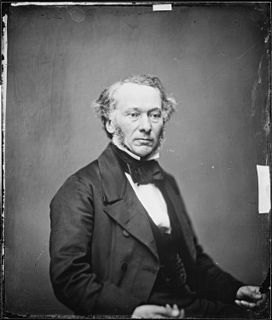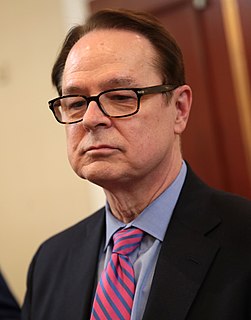A Quote by Walter Bagehot
Not only does a bureaucracy tend to under-government in point of quality; it tends to over-government in point of quantity.
Quote Topics
Related Quotes
Governments, if they endure, always tend increasingly toward aristocratic forms. No government in history has been known to evade this pattern. And as the aristocracy develops, government tends more and more to act exclusively in the interests of the ruling class -- whether that class be hereditary royalty, oligarchs of financial empires, or entrenched bureaucracy.
A bureaucracy is sure to think that its duty is to augment official power, official business, or official members, rather than to leave free the energies of mankind; it overdoes the quantity of government, as well as impairs its quality. The truth is, that a skilled bureaucracy is, though it boasts of an appearance of science, quite inconsistent with the true principles of the art of business.
The left wants you to believe that true morality is defined by how much money you give the government, how much money you pay the government, how much money the government gets from you, because only the government does good stuff, only the government does good works, only the government cares about people. It's bogus.
Government has only one religion - India first! Government has one holy book - the Constitution. The Government must be immersed in only one Bhakti- Bharat Bhakti! The Government's only strength is Jan Shakti! Government's only ritual is the well being of the 125 crore Indians! The only code of conduct of the Government should be 'Sabka Saath, Sabka Vikas!
It is hard to imagine having a government more secretive than the United States. Virtually everything that government does, of any significance, is conducted behind an extreme wall of secrecy. The very few leaks that we’ve had over the last decade are basically the only ways that we’ve had to learn what our government is doing.
We should distinguish at this point between "government" and "state" ... A government is the consensual organization by which we adjudicate disputes, defend our rights, and provide for certain common needs ... A state on the other hand, is a coercive organization asserting or enjoying a monopoly over the use of physical force in some geographic area and exercising power over its subjects.


































